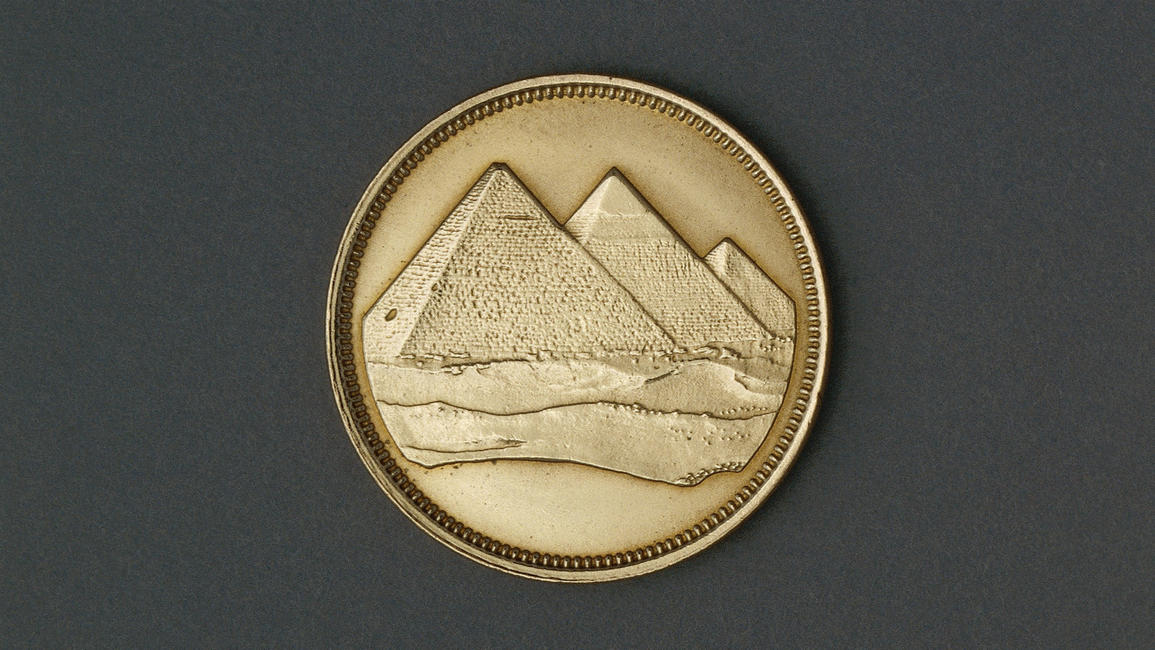Declining Egyptian pound will attract foreign investment, say bankers
Declining Egyptian pound will attract foreign investment, say bankers
The Egyptian Central Bank has permitted the Egyptian pound to decline in a move that analysts say may attract increased foreign investment and spur economic growth.
2 min read
The value of Egypt's currency has slipped this year [Getty]
The Egyptian pound has fallen to a new low against the US dollar, the second such drop in days, the country's central bank said on Sunday, in a move that could help boost much-needed foreign investment.
The central bank set a cutoff rate of 7.73 Egyptian pounds per dollar in an auction that sold $39.6 million on Sunday, compared with a previous low of 7.63 on Thursday.
The pound had previously held steady at 7.53 since February.
The new rate is the lowest level since the Egyptian government introduced an auction system in December 2012 to regulate the pound's devaluation.
"It's welcome to have, within the current context, a weaker pound because the economy is shifting towards a growth mode so one of the key ways to push this growth forward is through foreign exchange," said Mohamed Abu Basha, an economist at regional investment giant EFG Hermes.
A cheaper Egyptian pound will mean foreign investors get more for the money they invest in Egypt, presumably making Egypt a more attractive destination for their investments. However, it means that the burden of Egypt's foreign debt - most of which is denominated in US dollars - will increase.
Investors and economists see the currency as overvalued, and the central bank had allowed the pound to slide somewhat before a major investor summit in March.
The central bank has also allowed commercial banks a wider margin for selling and buying dollars since January, at 0.10 pounds above or below the official rate.
Egypt's government is trying to send the message that the country is open for business, after struggling since the 2011 uprising that ousted autocrat Hosni Mubarak.
It has launched a series of ambitious mega-projects and pushed through a host of tough measures, including slashing fuel subsidies and amending the property tax law.
The central bank set a cutoff rate of 7.73 Egyptian pounds per dollar in an auction that sold $39.6 million on Sunday, compared with a previous low of 7.63 on Thursday.
The pound had previously held steady at 7.53 since February.
The new rate is the lowest level since the Egyptian government introduced an auction system in December 2012 to regulate the pound's devaluation.
| One way to push growth is through a weaker pound. -Mohamed Abu Basha, economist |
A cheaper Egyptian pound will mean foreign investors get more for the money they invest in Egypt, presumably making Egypt a more attractive destination for their investments. However, it means that the burden of Egypt's foreign debt - most of which is denominated in US dollars - will increase.
Investors and economists see the currency as overvalued, and the central bank had allowed the pound to slide somewhat before a major investor summit in March.
The central bank has also allowed commercial banks a wider margin for selling and buying dollars since January, at 0.10 pounds above or below the official rate.
Egypt's government is trying to send the message that the country is open for business, after struggling since the 2011 uprising that ousted autocrat Hosni Mubarak.
It has launched a series of ambitious mega-projects and pushed through a host of tough measures, including slashing fuel subsidies and amending the property tax law.



